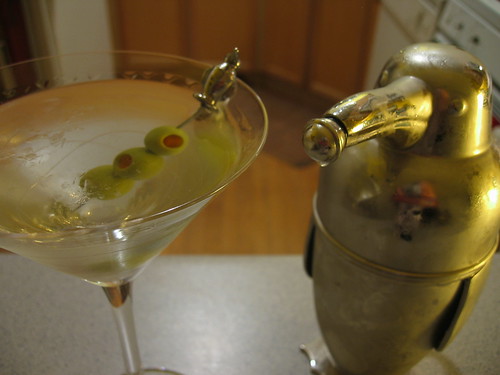1 One of the things that comes through most clearly is how many times Fermor could have easily been killed while working as an operative on Crete during the war, a role that was about midway between that of a spy and that of a guerilla organizer. The most memorable came when he and two colleagues were caught out in a field as more than a hundred Germans began pouring up the hill. The three
scrambled into the woods and hid in a thick cypress tree. They spent the rest of that freezing day (it was 25 January) in its branches, scarcely daring to move. The German patrols went to and fro, shouting to each other; some soldiers passed almost directly beneath them. But in the late afternoon the Germans gave up the search when a mist rolled in and snow began to fall.Fermor and his companions climbed down and clambered uphill to safety . . . of a sort: they spent the night in a damp hole before making their way to a friendly village.
My first thought on reading that was of the Royal Oak, in which Charles II took a similar shelter (with the wonderfully named Lord Careless) after having his forces crushed by Cromwell at the Battle of Worcester in 1651--and I was pleased to learn from Cooper that Fermor took to referring to the escape oas "Oak Apple Day" in honor of the historical parallel.
I thought I remembered a good account of that scene in Jenny Uglow's engaging biography of Charles II, A Gambling Man, but on turning to it I discovered that she refers to it only in passing. Her overall account of the king's dramatic escape, however, is worth sharing:
Although a huge reward of £1,000 was on his head, and all were asked to watch out for "a tall black man, over two yards high," Charles dodged his pursuers with the help of the royalist network and his own wits and charm. He took refuge with Catholic gentry in Shropshire and Staffordshire before cutting his long black hair short and working his way across the West Country as a servant of Jane Lane, a colonel's daughter travelling to help her sister-in-law in childbirth. As a servant should, he rode on horseback with her, doffing his cap to his betters, overseeing the shoeing of a horse, fumbling with a kitchen jack, joking with ostlers and grooms. Finding no chance of a boat from Bristol or Bridport in Dorset, both bristling with Commonwealth troops, Charles turned east, along the south coast. In Brighton, as he stood with his hands on the back of a chair near the fire, an innkeeper knelt down and kissed his hand, "saying, that he would not ask him who he was, but bid God bless him whither he was going."2 I shared a handful of very brief points of interest (or amusement) on Twitter earlier this week that I'll repeat in case you didn't see them there. Lawrence Durrell, on first meeting Fermor, called him "A wonderful mad Irishman . . . quite the most enchanting maniac I've ever met," while Steven Runciman called him "a very bright, very grubby young man." And then there's this, which Cooper reports from Fermor's time on Mount Athos during his trans-European hike: "He also saw the cook's cat, which could do somersaults." My cats are even lazier than I thought.
3 Finally, as it's Friday, I'll close with two bits about drinking, which Paddy and his friends did prodigiously in the years before, during, and right after the war. As Greece teetered on the verge of civil war in 1946, Fermor was hired by the British Council to travel the country giving lectures on British culture--but he relatively quickly found himself instead telling the story of how he led a team that kidnapped a German general from Crete. (That adventure is told well in Ill Met by Moonlight, written by Fermor's companion on the raid, W. Stanley Moss.) Cooper tells of the first lecture about the kidnapping:
At the lectern Paddy had a carafe and a glass, from which he took repeated sips as he told the story. When it was nearly empty, he refilled it from the carafe. A roar of approval went up from the crowd as what remained in the glass turned milky-white--Paddy had been drinking neat ouzo.Then there's Fermor's account of the regular drinking--and its effects--when he got back to London, a bit at sixes and sevens like so many following the war, in the spring of 1947:
"It was a marvellously exhilarating time: hangovers were drowned like kittens the following morning in a drink called either a Dog's Nose or a Monkey's Tail: a pint of beer with a large gin or vodka slipped into it, which worked wonders."I think--and I suspect that Aesop might back me up--that that's not how one drowns a kitten, but a lion. Have a good weekend, folks.


